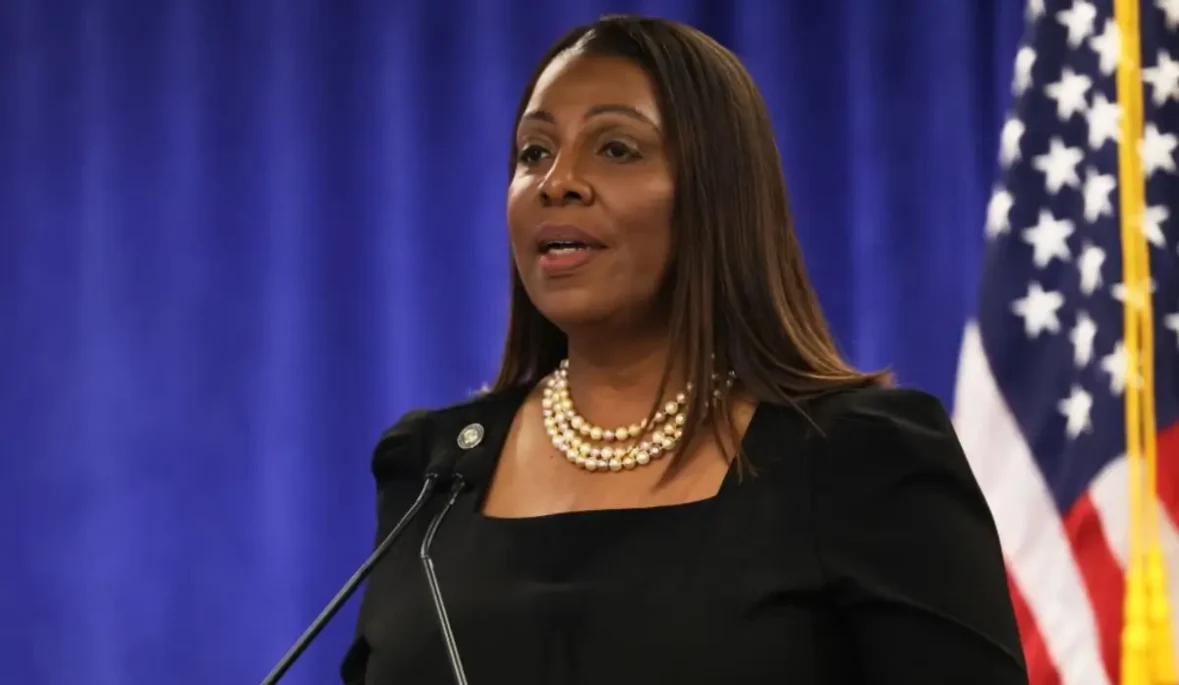An April 22 court hearing is scheduled to determine whether Donald Trump has satisfied the conditions to meet the bond reduced from the $464 million he was required to post to the state of New York to appeal the civil fraud judgment handed down against him earlier this year.
In an objection to the deal filed earlier this month by New York Attorney General Letitia James, major concerns were raised about whether Trump had met the conditions of the $175 million reduced bond that Trump got in late March after the former president successfully appealed the requirement that he post a bond of the full amount of the judgment, plus interest. James was positioned to begin seizing Trump’s assets if he couldn’t pay the entire amount in cash.
Trump’s lawyers responded this week to James’ April 4 motion, arguing that her office’s scrutiny of the bond posted last month was unnecessary and lacked detail, adding she should be responsible for the cost of the spiraling legal battle.

“The NYAG’s exception is taken unnecessarily and should be set aside with costs. Her sparse notice identifies no insufficiency other than the failure to enclose a certificate of qualification,” says the motion filed by Trump’s lawyers. “While a certificate would be dispositive evidence of justification, it is not the only evidence of justification.”
Previously, Trump asked for a delay in paying the staggering fine while he challenges the unprecedented ruling, although usually, New York defendants must post a bond payment greater than the penalty to become eligible for an appeal.
The Feb. 16 ruling by Judge Arthur Engoron found Trump liable for inflating the value of his New York real estate, including his hotels and golf clubs, while defrauding banks and insurers for decades.
In late March, a New York appeals court held off on putting the former president into collection if he could raise $175 million within 10 days, but the filing by James in early April took issue with whether the terms had been met.
Initially, issues with the first bond order led to the amended version that would allow Trump to pay 62 percent less than the original verdict.
A small number of billionaire donors stepped up more than a month after the judgment to help Trump raise his new bond, which Trump admits he can’t afford to pay in cash after he bragged for years about being one of the world’s wealthiest billionaires.
Ultimately, Knight Specialty Insurance Company and its owner, Don Hankey, got involved to post the $175 million and help Trump prevent the attorney general from seizing Trump’s properties to collect the massive judgment.
In her arguments on April 4, James said Trump’s lower bond amount was issued “without a certificate of qualification pursuant to Insurance Law § 1111” and that Trump’s legal team needed to file additional documents within 10 days to “justify the surety.”
However, attorneys for Trump dismissed James’ concerns over the “sufficiency of the surety.”
Trump’s lawyers and the lawyers for KSIC filed documents on April 15 to respond to James, arguing the attorney general’s objection to their bond should be dismissed and that her office should pay for the costs they incurred in responding to her objection.
The lawyers acknowledged that a “certificate of qualification” would eliminate the need to explain the bond. However, they argued in their memo that Engoron can approve the bond even without the certificate. They stated that there is “overwhelming” evidence in documents showing that the $175 million bond is backed by $175 million in cash in a Schwab brokerage account that KSIC can control.
The latest court filing underscored Trump’s dire financial situation as campaign disclosures in February revealed about $50 million from Republican donors was used to pay Trump’s runaway legal bills as he faced an onslaught of criminal and civil charges.
The ruling by Engoron also coincided with a separate judgment issued in a defamation lawsuit brought by author E. Jean Carroll, in which Trump was ordered to pay $83 million.
In the suit brought by AG James, Trump was ordered to pay $355 million, which almost immediately surged to $454 million with interest, which has increased by more than $85,000 per each day that Trump didn’t pay the full fine.
James filed the civil action against Trump in 2022 after uncovering evidence of systematic fraud inside the Trump Organization, including schemes that inflated Trump’s net worth with bogus financial statements.
Last year, Trump and his adult sons testified in the trial and blamed accountants for financial mismanagement. Both Trump Jr. and Eric Trump testified that they had little to do with their father’s financial statements, emphasizing that other executives inside the Trump Organization were responsible for keeping track of the books.


